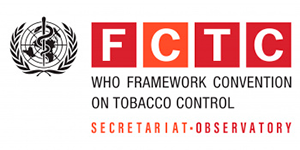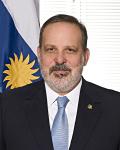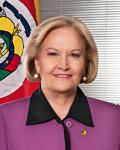The act of influencing decision makers can take many forms and can be direct or indirect. On this website, the term direct or indirect lobbying will be used to describe how the tobacco products industry works to influence public policy makers in order to obtain benefits so that, in this way, their products are not subject to regulation. This industry also lobbies through third parties or 'front groups' (indirect lobbying) to defend its interests which are rarely transparent. In Europe, the meaning of lobbying encompasses all types of corporate political activity, while in the United States, lobbying is more explicit.
This Observatory adopts a more restricted view, that is, it considers lobbying as the contact between the tobacco industry and public policy makers to obtain advantages and hinder actions for tobacco control. For other forms of political activity, distinct categories were created here.
Direct Lobbying
Direct lobbying refers to contacts between the industry and those responsible for legislation and/or regulation of tobacco products. Different social actors are involved in this type of activity:
- Tobacco-related companies
- People in the tobacco industry
- Politicians
- political consultants
''Lobbying'' is not simply getting specific ideas and data to the authorities. It also seeks to form links or establish ties between industry and government. Working together with policymakers can be very useful for industry, as can having access to working groups or advisory committees. The idea is to keep channels free so that the industry can question the meaning of existing legislation or influence the development of new regulations. For example, we have industry interference with the government, which culminated in the creation of the Chamber of the Tobacco Production Chain, linked to the Ministry of Agriculture, Livestock and Supply (MAPA), contributing to the development of tobacco industries and the promotion of their products, such as the Brazilian tobacco certification proposal1 2.
Another example of influence is the movement of politicians who declared themselves against Bill n. 769/2015, by Senator José Serra. which deals with issues such as: banning cigarette advertising, use of additives that add flavor and aroma, standardization of cigarette packaging and traffic violation the act of smoking in vehicles when there are passengers under the age of eighteen, among other measures. While the bill has the support of José Serra himself and of the rapporteur Otto Alencar, unfortunately the number of politicians who are against and, therefore, impede the advancement of public health in the fight against smoking, is greater, which demonstrates the how influential the tobacco industry.
hospitality and gifts
In addition to conversations, contacts may involve other activities, such as: offering gifts to politicians and public servants; cash donations to political campaigns and/or political parties. The WHO defines this activity as "political funding to garner legislative votes and favor". Travel funding for researchers to attend technical meetings, cover speaker costs or job offers are seen as more acceptable. In addition, job offers can encourage the inclusion of politicians or public servants in positions as lobbyists or consultants in the area of their previous activity in the public service. The Observatory lists the latter activity under the term "revolving door".
There is also evidence of politicians participating in events organized and sponsored by a company linked to the tobacco industry. Such events range from private dinners to international travel fully paid for by the tobacco industry. For example, Japan Tobacco International spent 86 thousand reais entertaining British parliamentarians for six months throughout 2011. 3.
Indirect Lobbying
Indirect lobbying refers to contacts between regulators and policymakers as detailed above, and between people and organizations acting on behalf of the tobacco industry. You can use as an example:
- Lobbying groups, including industry (tobacco-related) organizations and other trade organizations;
- Transnational networks of lobbies;
- Lobbyists and Public Relations personnel.
Some people argue that lobbyists speak for the industry and are transparent about who pays them, so this could also be considered direct lobbying. Others think this is debatable. The line between direct and indirect lobbying is fine. However, when "Research Institutes" or other political institutions are involved, we see indirect lobbying activity, which includes the use of "Techniques Involving Third Parties", such as "hiring independent experts" to talk to politicians , or using front groups to exert pressure on behalf of the industry, without revealing their interests.
For example, the British organization of small retailers, the National Federation of Retail Newsagents, was indicted for taking money from "British American Tobacco" while campaigning against anticipated regulations on point-of-sale displays.
Another recent case is the documentary evidence of bribes that were offered by BAT to political representatives, who were once committed to the United Nations Framework Convention on Tobacco Control, but who entered into an agreement with the interests of the industry. of tobacco mentioned in order to undermine the effects of this international treaty in their respective countries4. In this case, the BBC Panorama Program shows that three representatives of African countries that follow the FCTC caused interference in favor of the BAt in the negotiations on the convention in 2013, including Godefroid Kamwenubusa, an official at the Ministry of Health of Burundi, who received about $3,000; Chaibou Bedja Abdou, FCTC representative in Comoros, who also received US$3,000 and Bonaventure Nzeyimana, former Rwandan representative, who received US$20,0005.
legal strategies
The use of legal strategies, such as: litigation or challenging legislation, are also used as a form of indirect lobbying. In 2011, in the UK, the industry tried to slow down the political process by delaying a round of consultations on the EU Tobacco Products Directive.
A recent study employing automated content analysis techniques found that the European Union legislation concerning the subject was significantly altered, through lobbying actions, aiming to contemplate the interests of the industry, with the assistance of many other stakeholders. ', including retailers.6.
In Australia, the industry challenged the legal basis for the regulation of plain packaging in the courts, using arguments about copyright and free trade and also questioned the evidence presented by the scientists responsible for the research, which showed the influence of packaging for the consumption of these products.
Another way to delay legislation and confuse the agenda is to introduce voluntary measures. Often this self-regulation forms part of Corporate Social Responsibility programs, where lobbyists are focused on improving corporate reputation. Industry efforts to play a role in decision-making have evolved into sophisticated attempts to influence the debate on tobacco and its regulation across a broad spectrum.
The Observatory also has separate categories that describe how the industry employs Media Tactics, Online Tactics and seeks to counter criticism. Additional details can be found on these pages.
lobbying
In the US, lobbying is different from other European countries. On the one hand, it is less subtle, less veiled, but on the other, growing protests against corporate influence in government and politics are forcing the industry to seek new strategies. A recent example is how Philip Morris International, in an attempt to gain access and influence, sponsored an exclusive corporate reception in Washington DC in late February 2012. The focus of the event was the Trans-Pacific Partnership Agreement (TPP), a trade agreement that the US is negotiating with eight other countries. Speakers and guests included US international trade negotiators, representatives from other TPP countries and many state governors.
Calling on government officials not to attend, the NGO Tobacco-Free Kids highlighted that: "Philip Morris International was sponsoring this event at the very time when TPP negotiations were scheduled to resume in Melbourne, Australia. Tobacco companies are working aggressively to ensure that this agreement helps them open new markets for their lethal products despite their devastating health effects and in terms of lives taken. Excluding tobacco products from trade agreements will protect countries' authority to implement the measures recommended by the WHO Framework Convention on Tobacco Control7.
As time passes, tobacco companies have adjusted their strategies to maintain their ability to influence policy debates:
"Health advocacy groups have been working hard over the past decade to force the tobacco industry out of politics. And they've come close to achieving that goal — but not quitting."
After stoking legal disputes, tobacco companies have been trying to transform their image in American eyes. Once regarded as giant conglomerates that can use their money to curry political favors, big tobacco companies now approach politics more discreetly8.
December 14, 2010: Draft Legislative Decree to Suspend Normative Acts of the Executive Branch, 3034/2010.
Draft Legislative Decree to Suspend Normative Acts of the Executive Branch, 3034/2010
Suspends the effects of the Public Consultation of the National Health Surveillance Agency - Anvisa - number 112, of November 29, 2010, which opens a deadline for criticisms and suggestions regarding the proposal for Revision of RDC 46/2001, on the levels of tar, nicotine and carbon monoxide in cigarettes, and a ban on additives in tobacco products.
'''In this regard, see also:'''
- International Labour Organization (ILO)
- Techniques involving third parties
- legal tactics
- Revolving door
- 1. AMPROTABACO PARTICIPA DE ENCONTRO COM MINISTRO DA AGRICULTURA. GAZ. Rio Grande do Sul, 26 fev. 2014. Disponível em: http://www.gaz.com.br/_conteudo/2014/02/noticias/regional/14965-amprotab.... Acesso em: 26 fev. 2014. Documento integral em PDF: https://drive.google.com/file/d/0B0HvJttn0WXDRE1pRmcxUkJ3UFU/view?usp=sh...
- 2. UHLMANN, Fernando. Câmara Setorial debate projeto-piloto para certificação do tabaco. Folha do Mate, Rio Grande do Sul, 2015. Disponível em: http://www.folhadomate.com/noticias/politica/camara-setorial-debate-proj.... Acesso em: 30 mar. 2015. Documento integral em PDF: https://drive.google.com/file/d/0B0HvJttn0WXDbkdJdWd4eldKOW8/view?usp=sh....
- 3. GOSLETT,Miles; GLADDIS, Keith. Tobacco firm gave thousands of pounds Worth of hospitality to nine MPs who opposed smoking bill. Tobacco Compaign, 23 out. 2011. Disponível em: [http://www.dailymail.co.uk/news/article-2064483/Car-smoking-ban-Japan-To... http://www.dailymail.co.uk/news/article-2064483/Car-smoking-ban-Japan-To.... Acesso em: 13 out. 2014. Documento integral em PDF: https://drive.google.com/file/d/0B0HvJttn0WXDYm56QnppVFhRT3M/view?usp=sh....
- 4. BOSELEY, Sarah. British American Tobacco accused of bribing government officials. The Guardian, Inglaterra, 30 nov. 2015. Disponível em: http://www.theguardian.com/business/2015/nov/30/british-american-tobacco.... Acesso em: 8 dez. 2015. Documento integral em PDF: https://drive.google.com/file/d/0B4ivOg72nORyemE3WDNtRllhQTA/view?usp=sh...
- 5. ibidem
- 6. COSTA, Hélia et all. Quantifying the influence of the tobacco industry on EU governance: automated content analysis of the EU Tobacco Products Directive. Tobacco Control, v. 23 p. 473-478, 2014. Disponível em: [http://tobaccocontrol.bmj.com/content/early/2014/08/10/tobaccocontrol-20... http://tobaccocontrol.bmj.com/content/early/2014/08/10/tobaccocontrol-20.... Acesso em: 22 out. 2014. Documento integral em PDF: https://drive.google.com/file/d/0B0HvJttn0WXDM250R1NsMEtYQkU/view?usp=sh....
- 7. MYERS, Matthew. Philip Morris International Seeks to Buy Influence over Trade Policy By Sponsoring Exclusive Washington, DC, Event. Tobacco-Free Kids, Estados Unidos, 23, fev. 2012. Disponível em: [http://www.tobaccofreekids.org/press_releases/post/2012_02_23_trade http://www.tobaccofreekids.org/press_releases/post/2012_02_23_trade]. Acesso em:18 nov. 2014. Documento integral em PDF: https://drive.google.com/file/d/0B0HvJttn0WXDRVh1SmVxSWt0VTQ/view?usp=sh....
- 8. PARTI, Tarini. Tobacco Companies Adjusting Strategies to Remain Prominent Political Players. OpenSecrets.org, Estados Unidos, 7 jun. 2011. Disponível em: ‘[http://www.opensecrets.org/news/2011/06/tobacco-companies-adjusting-stra... http://www.opensecrets.org/news/2011/06/tobacco-companies-adjusting-stra.... Acesso em: 13 out. 2014. Documento integral em PDF: https://drive.google.com/file/d/0B0HvJttn0WXDZ3RSaDd2LWs3eEE/view?usp=sh....











